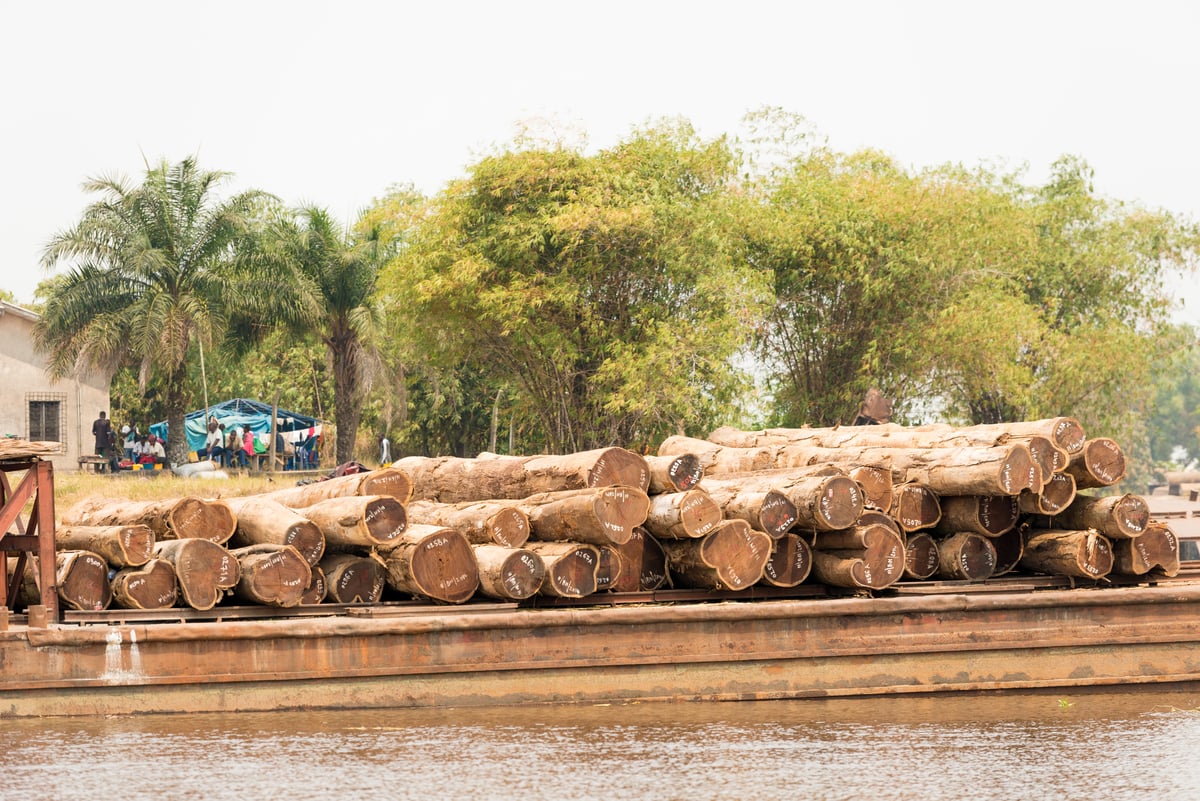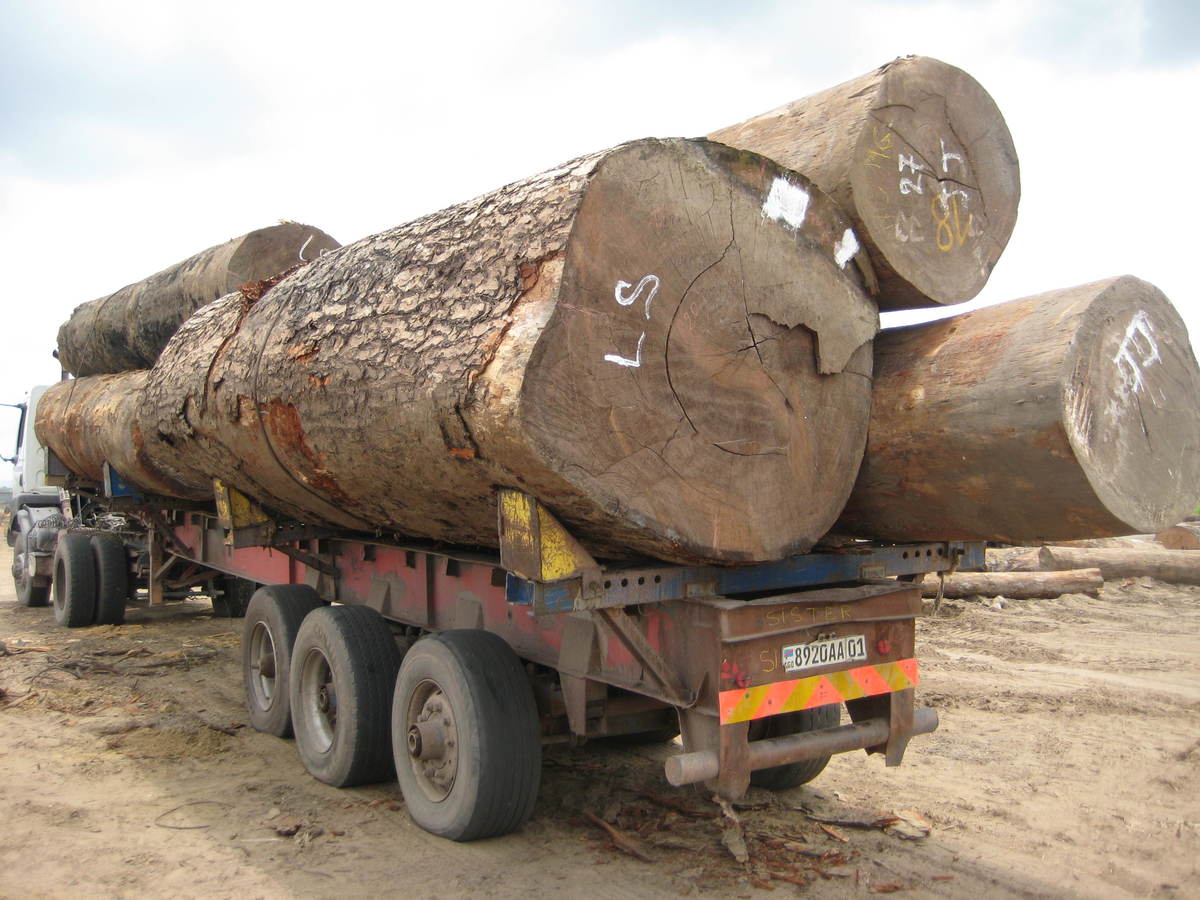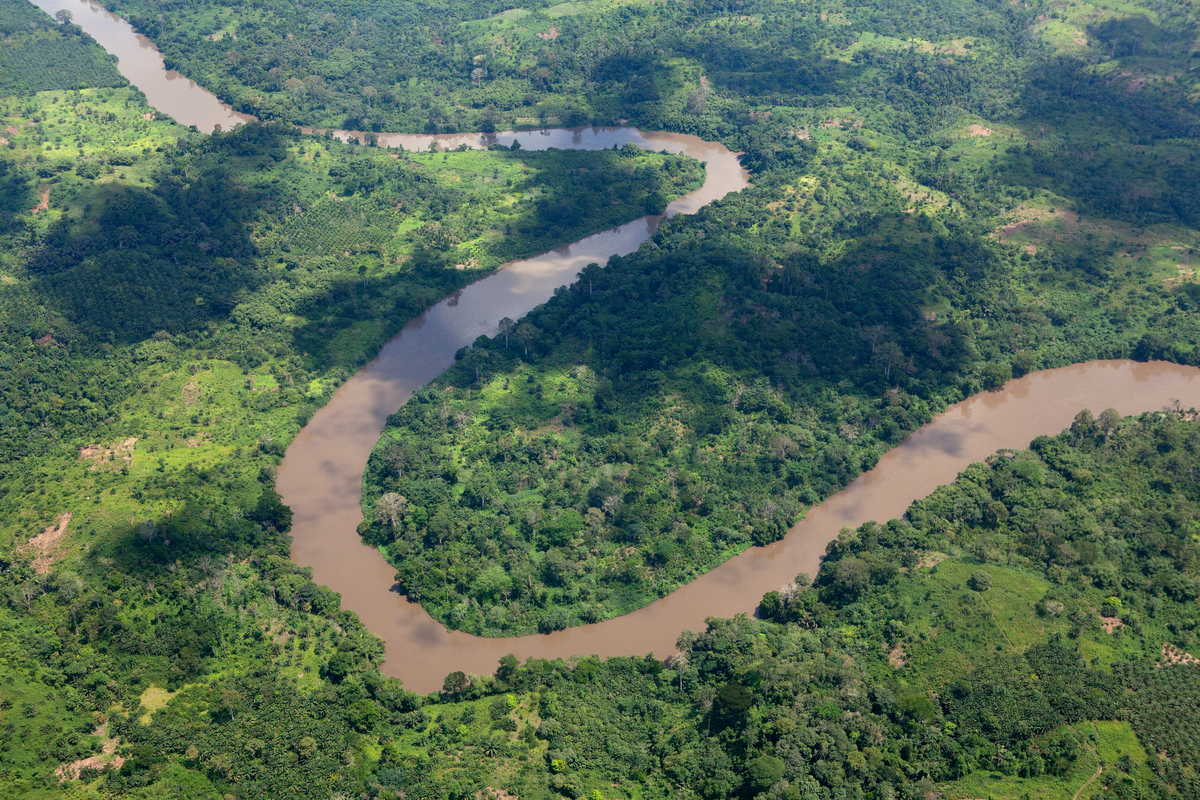
Transportation of Illegal Timber in the DRC. © Clément Tardif / Greenpeace
The fight against illegal logging has been a long and protracted one. Greenpeace itself has been involved for more than 20 years and, while it is undeniable that some progress has been made, it is equally evident that it continues to be a major problem.
At its worst it damages the environment, disrupts the global climate, leaves communities without the forests and land they depend on for livelihoods, fosters endemic corruption and land conflict, and leaves governments and authorities without taxes and revenue.
Laws, systems and initiatives do exist aimed at both controlling illegal logging at its source and preventing illegally-felled wood and timber products from entering overseas markets, including the European Union.
But in spite of this, ships full of illegal timber leave tropical producing countries, headed for foreign shores. Indeed in many ways it seems it has never been easier to be an illegal logger. Greenpeace has given people a tongue-in-cheek opportunity to apply to be an illegal logger themselves in an effort to demonstrate to European authorities that legislation, including the European Timber regulation (EUTR), will only be effective if properly enforced.
In Africa and the vast area of the Congo Basin there are numerous threats. Two reports released this week underline the variety of challenges to be overcome to ensure the continent’s forests and the communities who rely on them are protected.
In its new report Blood Timber, Global Witness reveals European, Chinese and Lebanese logging companies have paid millions of euros into the hands of rebels guilty of mass murder, kidnappings, rapes and the forced recruitment of child soldiers during a conflict begun in 2013 that has so far left more than 5,000 people dead and displaced a further million.

Unmarked Timber on Truck in DRC. © Greenpeace
The report states that the main market of this timber is the European Union, although significant amounts end up in China as well. So-called ‘conflict timber’ (trade in timber that which contributes to the financing of armed conflict) was listed as a key element and priority by the European Union when it drew up its Forest Law Enforcement, Governance and Trade (FLEGT) Action plan, but more than a decade later it seems clear that very little meaningful attention or action has been taken to solve this problem.
The role of China, and other Asian countries, as an increasingly important market for timber from Africa, and the Congo Basin in particular, is reflected in another important report released this week. New analysis on global illegal logging trends by the British think tank Chatham House shows that efforts to address illegal logging and reduce the trade in illegal timber have made some progress and seen some positive reforms in producer countries.
But the report goes on to detail how changes in the sector mean overall trade has not fallen in the last decade. China is now the world’s largest importer and consumer of wood-based products, as well as a key processing hub, accounting for half of all trade in illegal wood-based products. India, South Korea, and Vietnam are also growing markets.
The report also reinforces the fact that producing countries also need to continue to tackle endemic corruption if long lasting reforms and progress are to be achieved.

Coastal Rainforest in Cameroon. © Alex Yallop / Greenpeace
Greenpeace has long warned that more forested areas in the Congo Basin continue to be cleared for agricultural projects. The so-called conversion timber produced from these projects will pose a huge legality issue for both the European Union and other importers and stakeholders in the years to come.
In a recent publication, Trading in Chaos, Greenpeace revealed how the Democratic Republic of Congo (DRC) continues to be plagued by the chaos that is its forestry sector. Companies including Cotrefor continue to fell and export legally suspect wood and fail to fully meet the terms of its social contracts with forest communities.
These widespread problems and illegal practices will not cease if existent laws are not enforced properly by both exporting and importing authorities, and if countries such as China do not take increased steps to prevent suspect timber entering their supply chains.
In the meantime it is the communities, biodiversity and forests of areas such as the Congo Basin that suffer first.
Irene Wabiwa is the forest campaign leader with Greenpeace Africa.
